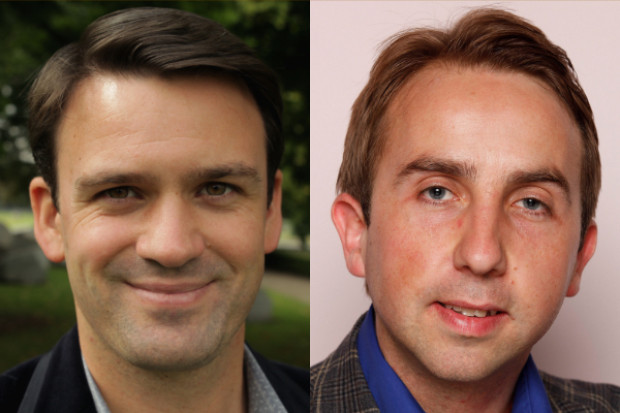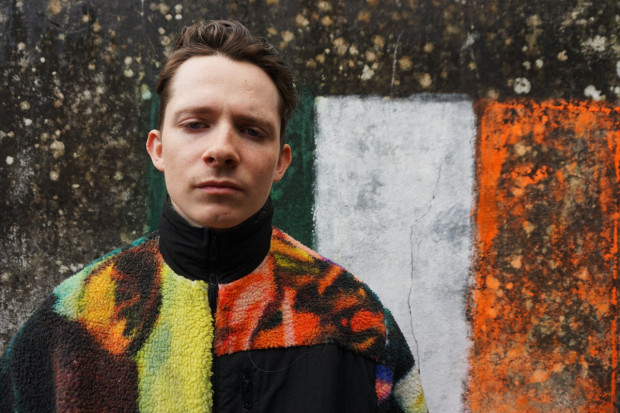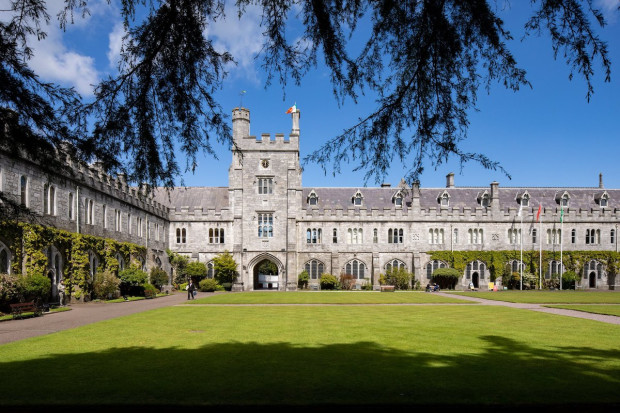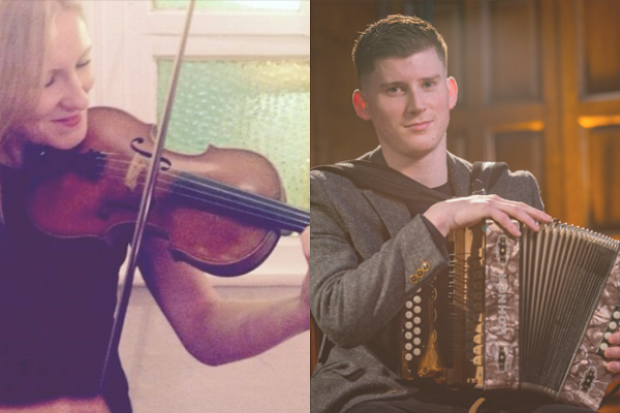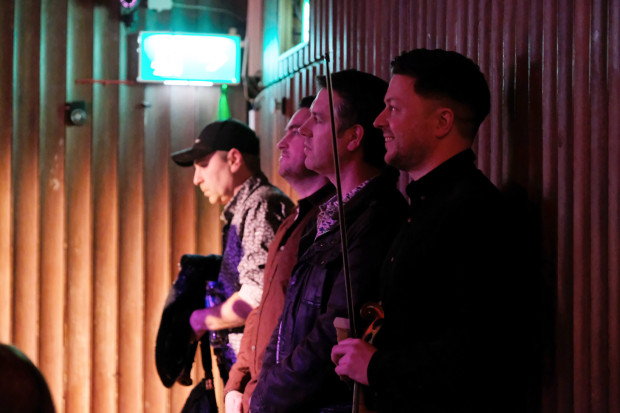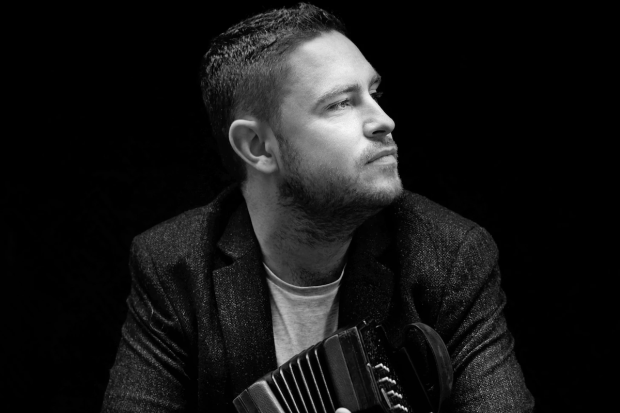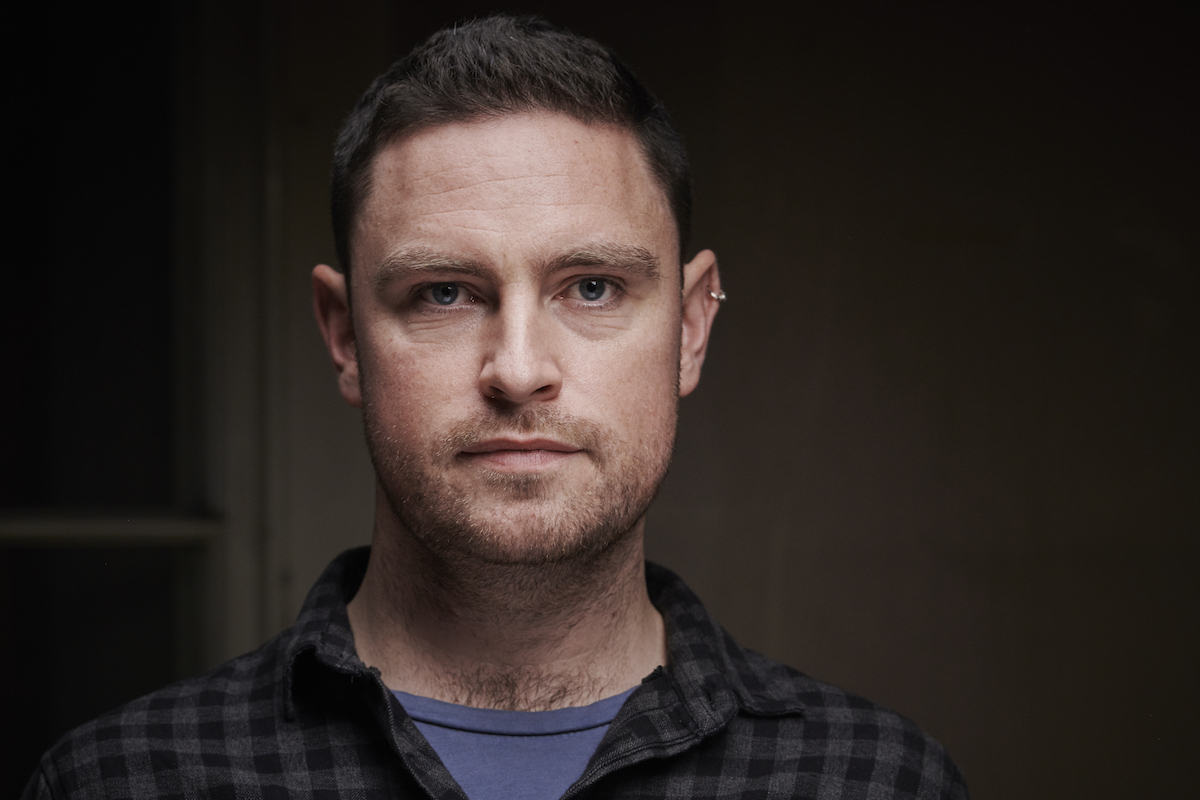
Jack Talty (Photo: Ros Kavanagh)
No Blueprint: An Interview with Jack Talty
When Jack Talty was around ten years old, he began learning the concertina with Noel Hill. Talty had already begun learning piano two years earlier but he always knew the concertina would be part of his life, not least because the famous Clare musician was his uncle (his mother’s brother), but also because the instrument was central to the culture around him. Talty began attending group classes in Ennis, Co. Clare, twice a month, and the fact of his relationship to Hill meant he also had the opportunity to talk further about the music with him while hanging around after classes. It was through these discussions that the young musician really started to learn about the culture of traditional music.
It wasn’t just the classroom… Noel being my uncle meant there was a lot of extra-curricular chat and discussion about music and musicians. So I got a sense from an early age of the importance of what happens outside the classroom… [and] the cultural significance of some of the key players. When he used to teach us different repertoire, there was invariably a story about who the tune came from. I learned about Tommy Potts when Noel taught me ‘The Drunken Sailor’.
Post-class chat and lifts back home were Talty’s opportunity to delve deeper, an education that still forms the basis of his music: ‘That was my opportunity to kind of bug him and ask more about these characters and ask him more about his life as a musician … that acculturation is so important for traditional music. It’s very real… It’s something that I see as central to every note that I play.’
Talty, now 33, released his first recording, a duet with concertina player Cormac Begley called Na Fir Bolg, eight years ago. It’s rare to have a duet recording of two concertinas, but from the first track, which features the great tune ‘Gypsy Princess’, there was something auspicious about it, a swing that came about from the meeting of two strong talents. His solo album, In Flow, released two years ago, is also a fluent and confident piece of work, and his style of playing is key to the recordings by the band he co-founded, Ensemble Ériu, for example on the track ‘3 College Square’.
Space for communicating
For Talty, the right combination of taste and technique can be key, something that he identifies in Hill’s playing and in particular on his solo recording from 1988, The Irish Concertina, which had a profound impact on him. ‘I don’t think there can ever be a more pioneering concertina album.’
Concertina technique wasn’t unimportant in Hill’s lessons, but Talty recalls that it was learned by ‘osmosis’.
One really important aspect of Noel’s teaching was that you were learning an awful lot about technique … [but] you were learning by default. It didn’t seem to be the most prominent thing that we ever spoke about. … This suddenly left a lot of space for thinking about music and thinking about what you’re trying to say and communicate. … It’s almost like you learn all of those techniques that he teaches you just to forget it and just to move on, which I found really interesting.
Talty has certainly moved on. The range of different musical activities that he is involved in today is diverse. For eight years he has run the Raelach Records traditional music label which has just released its seventeenth recording, and he has his own studio in County Clare. He has a PhD in music and did a dissertation on the traditional arts in third-level education, and he is currently conducting research for the new organisation Trad Ireland. Talty was also recently Traditional Artist in Residence at UCC, where he did his undergraduate degree, and, with Maurice Gunning, a Creator-in-Residence at the Irish Traditional Music Archive. He has released three albums with Ensemble Ériu and the group were awarded a TG4 Gradam Ceoil award in 2015.
I guess it’s important to say that I only really do one thing at a time. I think that’s very important. … I don’t necessarily believe in blueprints for what we must do or what we must be. I think we really should try to optimise and maximise how we do the things that we do…. I just love being involved in the label, so different to being a performer, so different to being a researcher. If you have a temperament that allows you to manage the different sides of your identity, I don’t see why you can’t get stuck in and enjoy the things that are there for you to do.
Studies
It was while studying in UCC that Talty’s interests broadened from concertina: ‘That’s where my interest in audio engineering came from. Any musician who dabbles in engineering … is going to venture into production…. I’d have to say that UCC did give me a platform where I could explore different sides of being a musician and not think that the sides are contradictory.’
As someone with a diverse engagement with traditional Irish music, he can see how vibrant the current scene is.
I look at it positively, and I acknowledge that I am looking at it optimistically. … I see people like Aidan Connolly reinventing and reinterpreting the likes of Paddy Cronin, and doing it so amazingly … Liam O’Connor playing the music that he can play… the epitome of excellence in any field … how could you ever think that traditional music can ever be in any danger? [Traditional music] is a very diverse practice now and that doesn’t bother me.
At the same time, the core tradition is what is most important to Talty, and he can understand why there has often been caution in traditional music culture.
What… is important to say about previous generations who feared about the health and sustainability of traditional music … [is that] they lived through a different time. If we’re being fair about it… they were very passionate people and were justified in the protectionism that they had around traditional music, because it wasn’t popular. They had to fight for things that I never had to fight for.
People are right to always be vigilant .. I don’t mean to dismiss the very genuine fears that people would have about the traditional arts today. They’re genuine concerns, but I’m saying that as a person, as a musician, my personal perspective is that I’m not always worried about that. I love playing music. I know how strong and healthy it is … I don’t need everybody to love our traditional music today for me to know how great it is.
Composing
For the upcoming fourteen-date tour, as well as performing traditional repertoire, Talty and each of the three musicians – Galician piper Anxo Lorenzo, fiddle-player Dónal O’Connor and guitarist Jim Murray – have been commissioned by Music Network to write a piece of music that together will make up a fifteen-minute suite. ‘I think it worked out really well. We wrote the tunes in isolation … and then we got together in Dublin during our rehearsal … and had a lot of fun putting arrangements on it.’
All the music on this tour will be instrumentals but nonetheless diverse. Lorenzo plays the gaita bagpipes, common to Galicia, northern Spain and Portugal, and is known for his virtuosic performances; fiddle-player Dónal O’Connor from County Louth is well established as a soloist and producer and for playing with innovative groups such as Ulaid and At First Light. Jim Murray from Cork is a widely regarded accompanist and has performed extensively with Sharon Shannon for two decades.
The tour will also feature a mix of instruments in different pitches: ‘Anxo has a lovely set of B pipes and we’ll be playing a set together on B concertina and B pipes… It’ll be a mixture of different keys, different instruments, different traditions… a way of sharing what we have.’
The new compositions will be just one interesting aspect of the tour, but Talty suggests composition is something that is natural in playing traditional music.
For anybody who loves traditional music, your curiosity at some stage will get you to compose, even if it’s in secret…. In my experience, and chatting with friends, I think it’s something that everybody tries at some stage and then sometimes they escape into the public domain, and sometimes they don’t. …It’s something I’ve done for a while, just out of curiosity…
The Music Network tour by Jack Talty, Anxo Lorenzo, Dónal O’Connor and Jim Murray begins on 14 January in Dublin and then travels to Newbridge (15th), Castlebar (16th), Clifden (17th), Drogheda (18th), Dún Laoghaire (19th), Letterkenny (20th), Ennis (21st), Cork (22nd), Bray (23rd), Wexford (24th), Baile Mhúirne (25th), Birr (26th) and London (30th). For full details and tickets, visit https://www.musicnetwork.ie/
The preview is supported by Music Network.












